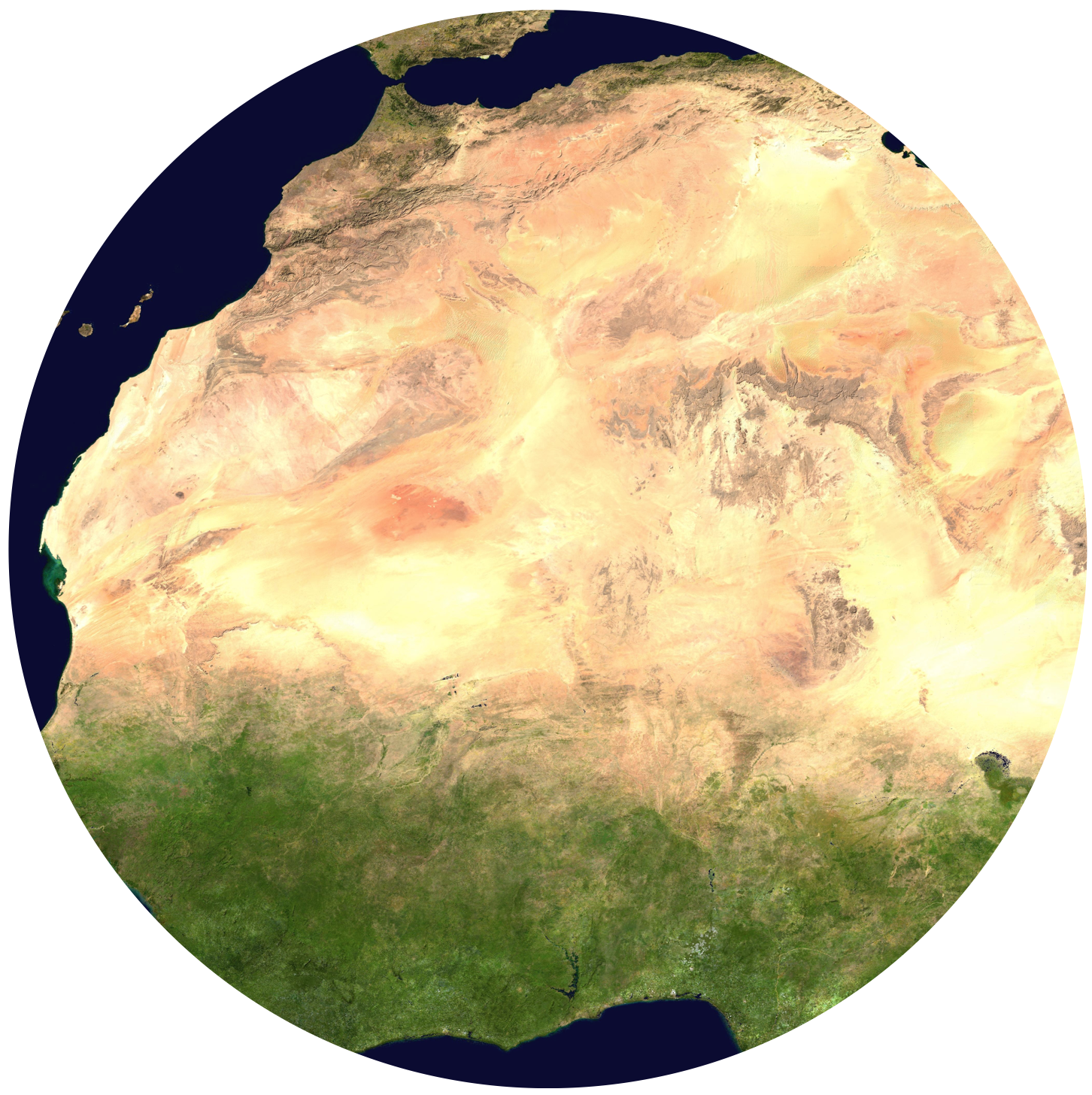A new set of atrocities have been carried out by militants in the restless North Sinai province in Egypt. In Morocco, following a high-profile trial, the killers of two Scandinavian backpackers have been convicted and sentenced to death. Elsewhere, Algeria braces for the final of the Africa Cup of Nations, as ongoing political protests have begun to mix with football euphoria.
The UN has called for the release of over 5000 migrants from detention centers in Libya following a number of humanitarian scandals, while in Tunisia the treatment of the bodies of deceased migrants has courted controversy. And Mauritanian President-elect Ghazouani met with the French Foreign Minister, in one of his most high-profile engagement pre-inauguration.
Algeria
The Ministry of Defence announced that the Algerian army had arrested five people who were planning "attacks" against popular demonstrations (Jeune Afrique)[1]. This comes as Algerian authorities have made extensive preparations, including dozens of arrests, in anticipation of likely disruption coinciding with Algeria’s upcoming match in the African Cup of Nations final (Financial Times)[2]. Additionally, the former Minister of Public Works, Amar Ghoul, has been placed under a warrant of deposit by the Supreme Court following his prosecution for corruption (ObservAlgérie)[3].
In other news reported by Human Rights Watch, three members of the Saharawi government-in-exile, that administer the refugee camps in Western Sahara, have been detained in Algeria under suspicion of treason and other charges (Human Rights Watch)[4].
Egypt
Further unrest in North Sinai, as Egyptian security services stated that militants beheaded four people in a new attack in the province (Haaretz)[5]. In a separate incident, there was another suicide bomb attack targeting security forces that resulted in the deaths of two people, including a civilian (Arab News)[6].
Egyptian authorities are set to begin questioning eight men deported from Kuwait this week accused of being part of a Muslim Brotherhood cell, a move which has been criticised by Human Rights Watch (The National; Human Rights Watch)[7]. Finally, there are reports that a planned ministerial reshuffle in Egypt's parliament could potentially unseat incumbent Prime Minister Moustafa Madbouly (The New Arab)[8].
Libya
The UN has called for the release of 5,600 migrants from shelters across Libya as reports of critical conditions mount during the ongoing armed hostilities (The Libya Observer)[9]. One such report suggests that migrants are being held at a small, dilapidated detention center in the southern Libyan city of Sabha, where they say they are being neglected by international organizations and often go hungry due to a lack of food (The Washington Post)[10].
In other news, reporters Without Borders has called on the Libyan Interim Government based in Eastern Libya to explain the order it has issued to municipal authorities not to cooperate with 11 TV channels (Libya Herald)[11]. There have also been further calls by international powers such as France, Italy, the UK, the US, the UAE and Egypt in expressing concern about the ongoing hostilities in Tripoli and calling for a return to the “political process” (Middle East Monitor)[12].
Mauritania
As part of his pre-inauguration schedule, prior to 2nd August, the President-elect for Mauritanian, Mohamed Ould Ghazouani, visited Paris where he met with the French Minister of Foreign Affairs, Jean-Yves Le Drian (Jeune Afrique)[13]. This interim period has become a new political focus as Biram Dah Abeid, the anti-slavery opposition candidate, suggested that the upcoming political dialogue between the regime and their opponents should be initiated before this period ends (C.R.I.D.E.M.)[14]. However, optimism for such a dialogue was muted by another opposition party, Tewassoul, who said that previous experiences with the regime at the end of its term do not give hope for success (Sahara Medias)[15].
Elsewhere, the Mauritanian authorities announced the withdrawal of military and security units stationed in the districts of Sebkha for the first time since the presidential election, in a sign of decreased tensions (Senalioune)[16]. This also coincided with the release of Ahmed Ould Wediaa, the Mauritanian TV journalist arrested on July 3 (Le Figaro)[17].
Morocco
The alleged killers of two young Scandinavians decapitated at the end of 2018 in the Atlas Mountains in Morocco, on behalf of the Islamic State terror group, have asked for "the forgiveness of God" at the last hearing of their trial (L’OBS)[18]. However, the three were convicted and sentenced to death, which if it goes ahead will be the first executions in the country since 1993 (BBC)[19].
In a continuation of the ongoing humanitarian crisis, Spanish and Moroccan maritime rescue services recovered 277 sub-Saharan migrants at sea, including a woman who had died (Le Figaro)[20]. And the head of the IMF mission in Morocco, Nicolas Blancher, welcomed the economic reforms undertaken by the Kingdom, but said that he believes there are still measures to adopt for accessibility to the labour market and the fight against inequality (Jeune Afrique)[21].
Tunisia
72 bodies of migrants were recovered from Tunisian shores, one week after a shipwreck. In a statement published on its website the NGO, Forum Tunisien pour les Droits Economiques et Sociaux (FTDES), stated regret for the “inhuman and degrading” way the bodies were treated by local authorities, pointing to the refusal of several municipalities to bury migrants with dignity in their cemeteries (RTBF)[22]. This news has been compounded by new reports that suggest that number of migrants arriving in Tunisia via the land border, mainly sub-Saharans arriving from Libya, has more than doubled in the first half of 2019, according to figures from FTDES (L'Orient le Jour)[23].
A new video has emerged that was signed by the press office of Islamic State in Tunisia. In it, jihadists renewed their allegiance to the self-proclaimed caliph Abu Bakr al-Baghdadi and called for further attacks on tourists (France Info)[24].
Elsewhere, Parliament has begun consideration of a bill to ban niqab in public spaces, following its recent ban in public administrations (Kapitalis)[25].

